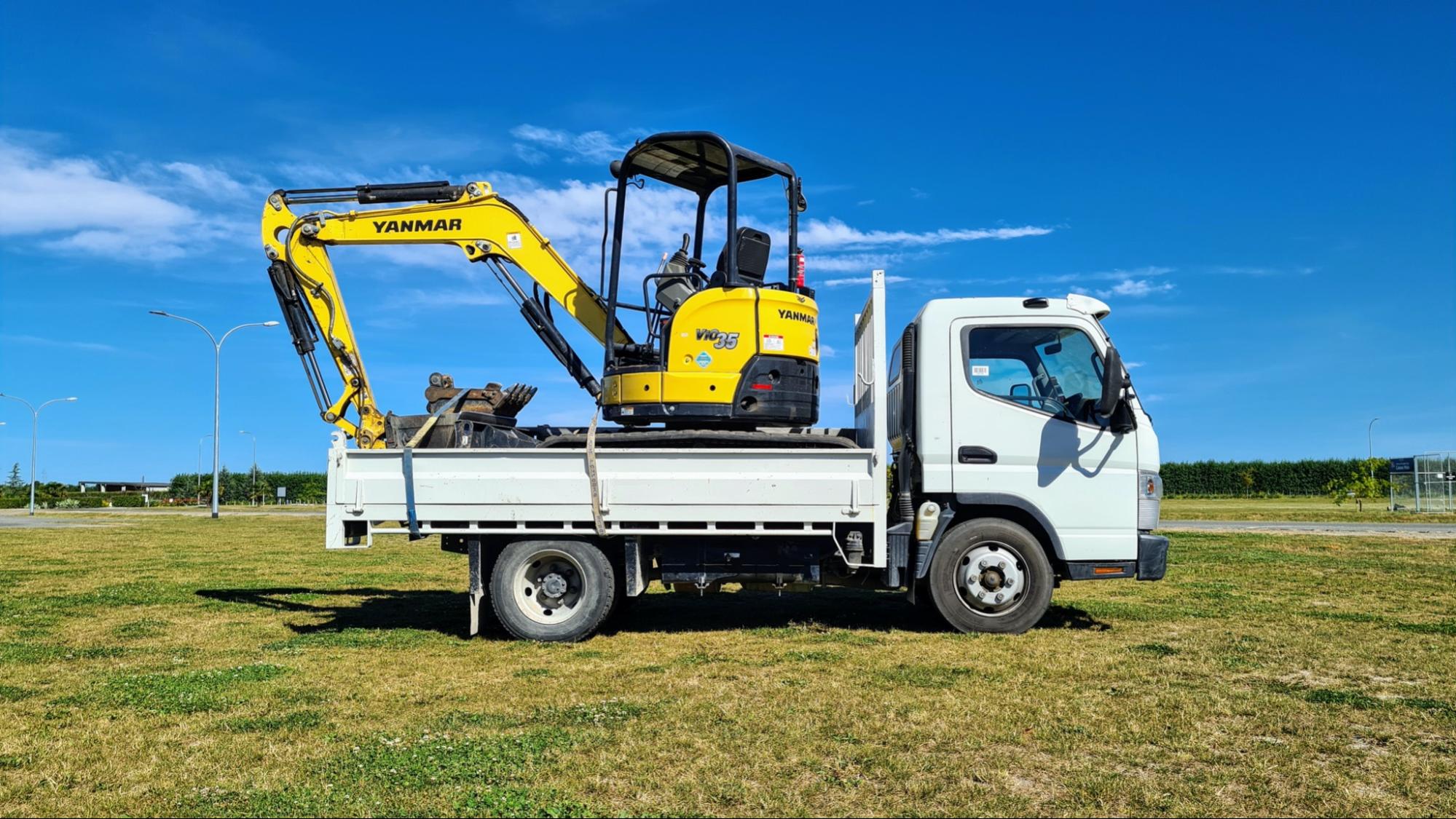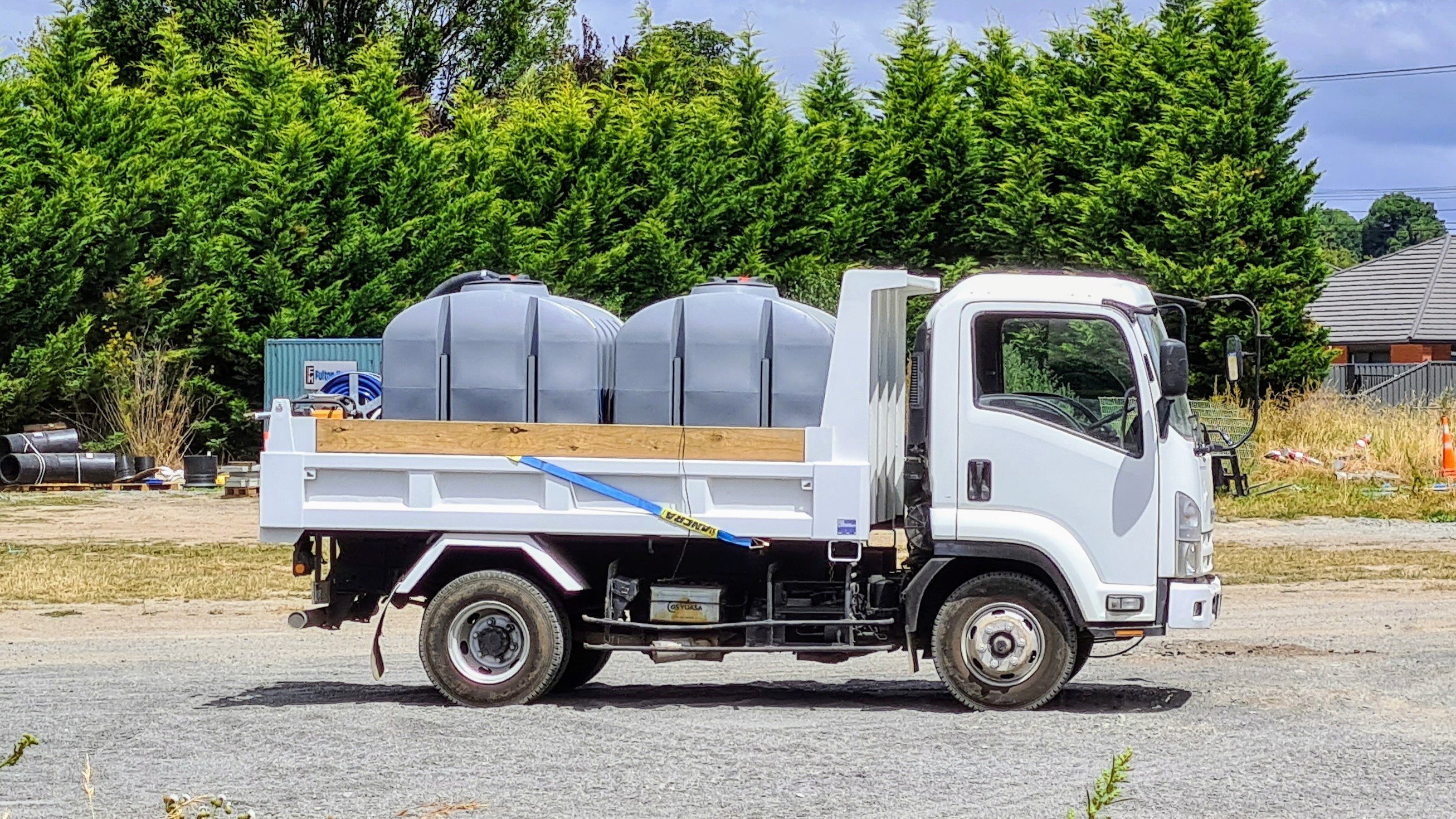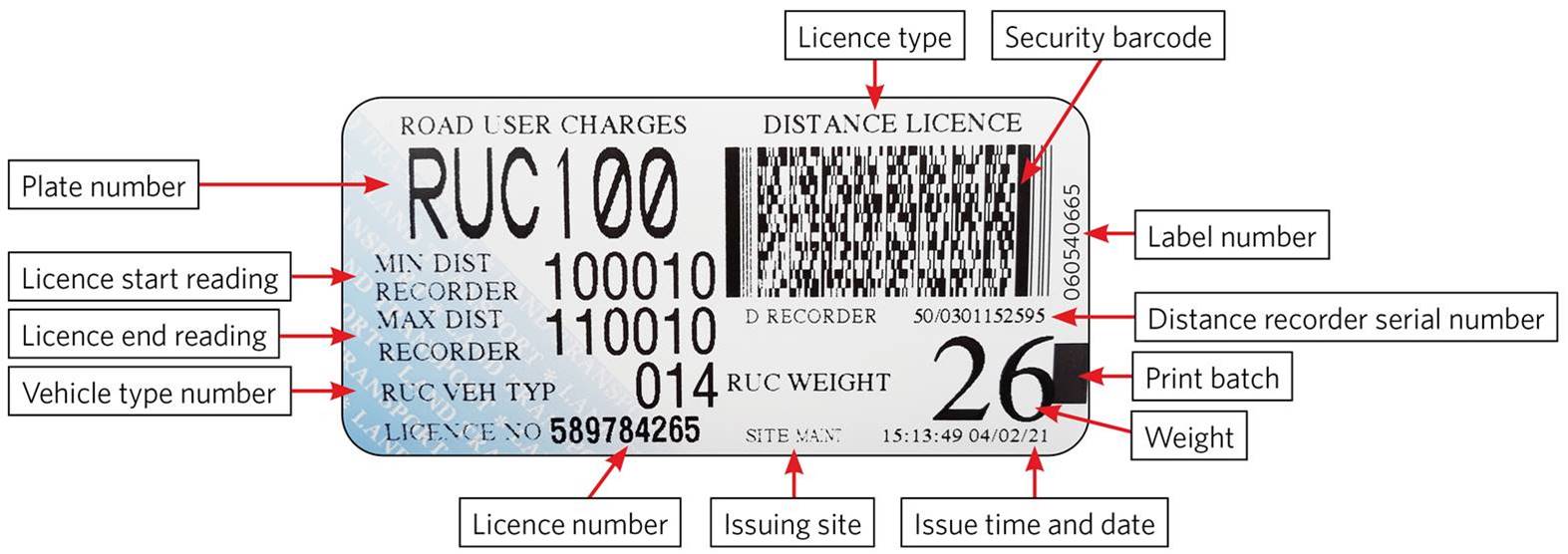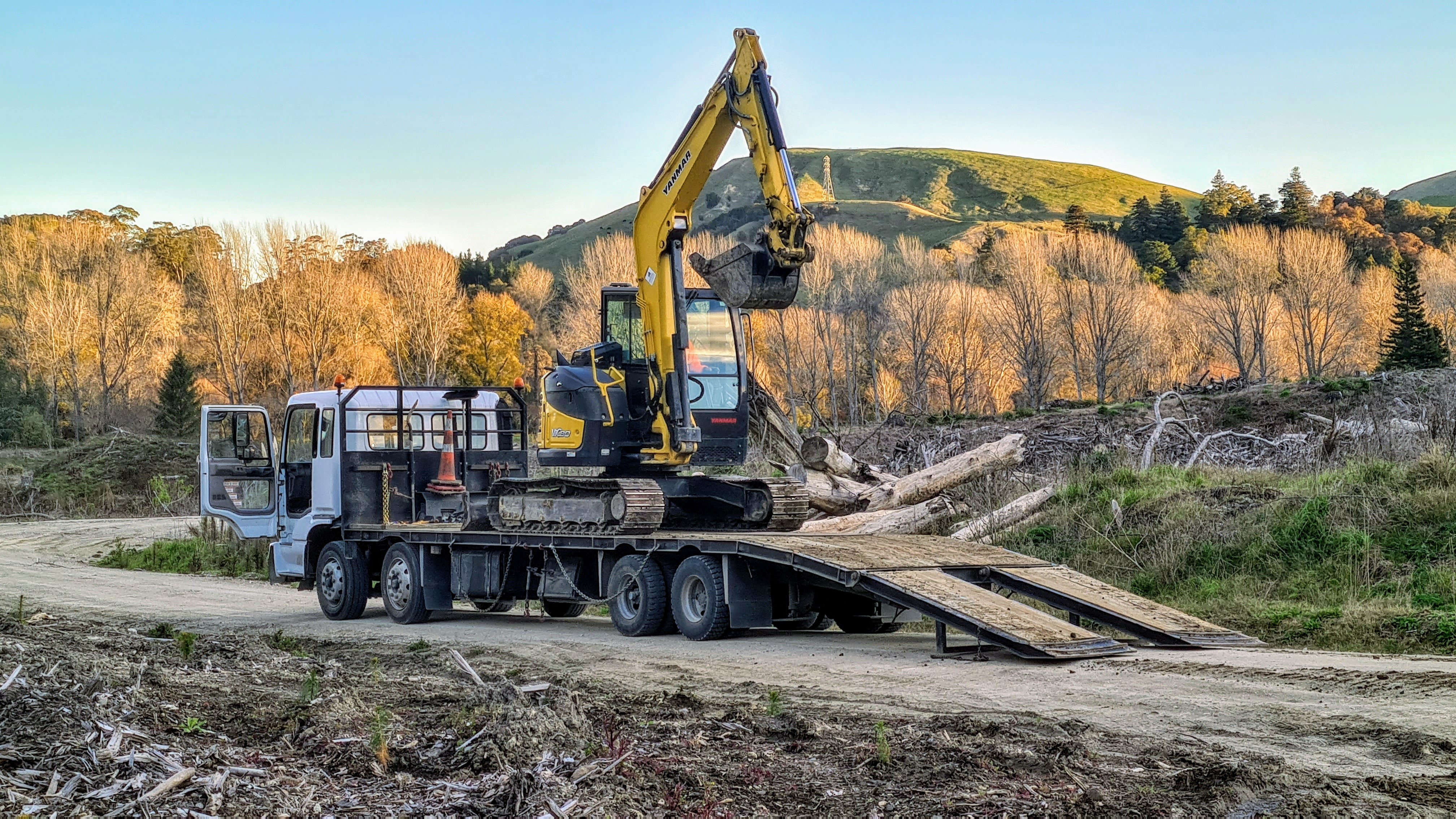Latest News
What do you need to know before you hire a truck?
 Getting the right equipment for the job can save you time and money. Do you need to hire a truck? Let’s take a look at 4 ways you can prepare to make sure you get the most from your truck hire.
Getting the right equipment for the job can save you time and money. Do you need to hire a truck? Let’s take a look at 4 ways you can prepare to make sure you get the most from your truck hire.
Estimated 5 minute read.
Short on time? Here’s a quick summary.
It’s easier to get the most from your truck hire experience if you follow these 4 steps to prepare:
- Fully understanding the weight and size of your load upfront will help you choose the right size and model of truck to suit your needs.
- Some trucks require a specialised driver licence. Do you have the right licence to drive the truck you need?
- Do you understand the costs involved in hiring a truck? It’s a good idea to find out before you hire whether you may need to pay for additional Road User Charges.
- Do you know how long you will need the truck for? Make sure you are aware of driving hour regulations and how to avoid driver fatigue.
Allways Hire make it easier to hire the right truck. Simply tell us what you need to do and we’ll help you hire the right equipment for the job. Call us today on 06 872 6774 or email us now at info@allwayshire.co.nz
Read on for 4 tips to help you get the most from your hire.
If you want to make sure your hire is efficient, it’s important to get the right equipment and have it available when you need it. That means you need to gather some information up front to make sure your truck hire is going to deliver. Here are 4 things you need to know before you hire or pick up your hire truck, that can help you get the most from your hire.
1. What kind of load do you need your hire truck to haul?
Fully understanding the weight and size of your load before you hire will help you choose the right size and model of truck to suit your needs. If you’re not sure what size or model you need, being able to share the load size will allow your hire company to recommend the best truck for your job.
What is the weight of your load?
As trucks increase in size, they are better equipped to carry heavier loads. No surprises that engine size is important as it takes more power to move a greater weight. But tyre and axle sizes also play an important role in understanding the type of truck you need to hire. The stronger the axles and bigger the tyres, and the greater the number of them, the more weight your truck will be able to transport. Trucks start with small or mini-trucks under Class 1 (car licence), then range from Class 2 (medium rigid vehicles) up to Class 5 (heavy combination vehicles).
What is the size or type of your load?
There are lots of different types of load that you might need to transport, and these will determine the type of truck you’re looking for. You also need to understand the dimensions or mass of your load so you can make sure the weight of your load is evenly distributed.
Your hire company will be able to tell you the capacity of the trucks you can hire, which makes it easier to choose the right machine. Knowing the size and type of your load will also help you choose the right type of truck so you can get the load on and off.
There are lots of different types of truck available that are adapted to suit different types of load. Examples of these are flat decks, open side, dropside, and box body. The main thing you need to know is the type of load you need to carry and how you want to get it on and off your truck. This will impact whether you want to load from the back or sides of the truck, and if you need a tipper truck so you can tip your load off at the other end.

Need to hire a tipper truck? Allways Hire offers a range of Class 1 and Class 2 Tipper trucks and can help you choose the right truck for your next job. Get in touch today and book your next hire.
When you pick up your truck you can double check it will carry the load you’re planning by reading the Certificate of Loading (CoL) which the hire company should have attached to the windscreen. The CoL is a 2-sided document that clearly displays the loading and weight limits. It will also show you maximum tow weights for the vehicle you’re hiring.
2. Do you have the right driver licence for the truck you’re hiring?
Many trucks require specialised driver licences so it’s important to make sure that you, or the person you’re sending to pick up and drive the truck, has the right licence.
The easiest way to work out what type of licence you need for the truck you are hiring is to ask your Hire Company. Most hire companies use the vehicle classification as part of the description of their trucks but if yours doesn’t you can simply ask them to confirm what class the truck falls into. Once you know the class of the vehicle, you know what class of driver licence you need to hold to be allowed to drive it.
The driver licence system splits licences into Classes based on vehicle type and weight. Visit the NZTA website here to understand the different licence Classifications and how they apply to vehicle type.
3. Do you need to pay for Road User Charges as part of your truck hire?
If the truck you’re hiring is diesel it will be liable for Road User Charges. You can make sure the Road User Charges are up to date by checking with your hire company representative and verifying the RUC certificate (example below) which should be displayed on the truck you’re hiring.
The odometer should be within the Licence end reading when you start your hire and for the duration of your hire. You can find out more details about Road User Charges here, on the NZTA website .

4. Do you know how long you will need the truck for?
An important part of planning your truck hire is calculating how long you will need the truck for. That means calculating how long it will take to do the job, and factoring in regulations around Work Time rules and driver hours.
Work Time rules are applied to make sure that drivers of heavy vehicles stay safe by avoiding the fatigue that comes from working too many consecutive hours. That includes the operation of trucks requiring Class 2 licences and above. It is the licence holder’s responsibility to maintain a logbook that forms a written record of their work time hours. You can find out more details about the rules here.
Making sure you have enough time to complete the job is an important way to avoid driver fatigue. Other ways to avoid driver fatigue include: getting a good quality of sleep before driving; making sure you are fully awake for a period of time before driving; avoiding alcohol; planning rest breaks on long trips; learning stress management techniques; being fit and healthy; and avoiding eating fatty, sugary or carbohydrate-filled foods which can make you feel tired.

Planning in advance is a great way to make sure you get the most value from the hire of your truck. You can get a head start on the hire process by understanding the size and logistics of your load; planning for the length of your hire and understanding the regulations for licences and work hours.
The team at Allways Hire are here to make it easier for you to hire the right truck for your job. We’ve got a range of trucks available and we make sure all of our fleet is well maintained and fully serviced. If you want to hire a truck you can rely on - we’re the team to call.
Our team are experts in our equipment and can work with you to make sure you’ve got the right truck for the job. You could even go for a combination hire and tow away all the machinery and equipment you need to complete the task in hand.
If you’re ready to hire, visit our truck information pages and complete our online form to enquire about availability of the equipment you need. Or why not call one of our friendly team and let them know how we can help.

